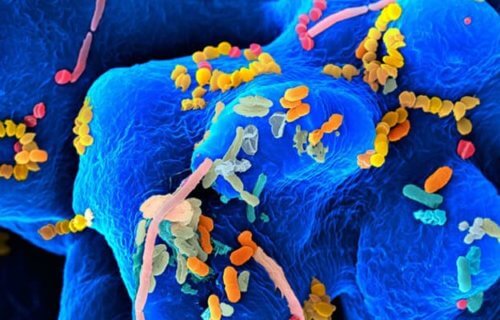SAN DIEGO, Calif. — Scientists and philosophers have been asking years — which came first, the chicken or the egg? Now, a new study is asking which came first, good gut health or wisdom? Researchers at UC-San Diego say they have discovered a connection between gut diversity and a person’s levels of wisdom and loneliness.
Study authors say wisdom ties in to certain regions of the brain, with greater wisdom translating into higher levels of happiness and life satisfaction. Previous studies, however, find those who are lonelier tend to have less of these positive traits. A team at University of California San Diego School of Medicine decided to take this connection further; examining how microbial diversity may correlate with what’s happening in the brain.
The human gut microbiota contains trillions of various microbes. Bacteria, fungi, and even viruses live in a fragile balance within the digestive tract. Researchers say they have been aware of a “gut-brain axis” for some time now. This complex network links intestinal function to various emotional and thinking centers in each person’s brain.
Neural activity, hormones, and the human immune system help to regular communication between the two. When gut health becomes unbalanced however, it can lead to changes in behavior, responses to stress, lower thinking power, and even make people more vulnerable to disease.
The gut’s link to better mental health
Previous reports find the gut microbiota may influence the development of mental health disorders like depression, bipolar disorder, and schizophrenia. Other scientists have discovered a healthy and diverse gut may depend on having large social networks.
The new study examined the gut health of 187 people between 28 and 97 years-old. Each of these participants completed a self report measuring their levels of loneliness, wisdom, compassion, social support, and social engagement.
Study authors analyzed the group’s fecal samples to determine the state of their gut microbiota. The UC-San Diego team did this in two ways, first by finding the ecological richness of each person’s microbial species (alpha-diversity) and then by comparing the differences between the group (beta-diversity).
“We found that lower levels of loneliness and higher levels of wisdom, compassion, social support and engagement were associated with greater phylogenetic richness and diversity of the gut microbiome,” says first author Tanya T. Nguyen, PhD, in a university release.
Which came first? Loneliness or poor gut health?
Although the results find a link between the two, study authors say they don’t know yet what exactly causes the connection between wisdom, loneliness, and gut microbial diversity. The team did see that less diversity does contribute to both worse physical and mental health. This also increases the risk of developing conditions like obesity, inflammatory bowel disease, and severe depression.
“It is possible that loneliness may result in decreased stability of the gut microbiome and, consequently, reduced resistance and resilience to stress-related disruptions, leading to downstream physiological effects, such as systemic inflammation,” the researchers write.
“Bacterial communities with low alpha-diversity may not manifest overt disease, but they may be less than optimal for preventing disease. Thus, lonely people may be more susceptible to developing different diseases.”
The study finds this link between loneliness and microbial diversity appears to be stronger in older adults. Those results also tie in with previous studies which find seniors are particularly vulnerable to health issues due to loneliness.
More social contact is better all around
So does better gut health make you wiser or does a wiser and happier person have a healthier gut? Regardless of which comes first, the study finds greater social support can protect against loneliness-related problems in the human microbiome. This can lead to better responses to stress and help shape a person’s behavior, promoting greater wisdom. Studies on animals suggest gut microbiota balance influences how other species behave and interact, but these theories have not been tested in humans.
Researchers note their report did have some limitations, including lack of data on each person’s social networks, their diets, and amount of isolation they face.
“Loneliness may lead to changes in the gut microbiome or, reciprocally, alterations of the gut milieu may predispose an individual to become lonely,” says senior author Dilip V. Jeste, MD. “We need to investigate much more thoroughly to better understand the phenomenon of the gut-brain axis.”
The study appears in the journal Frontiers in Psychiatry.
